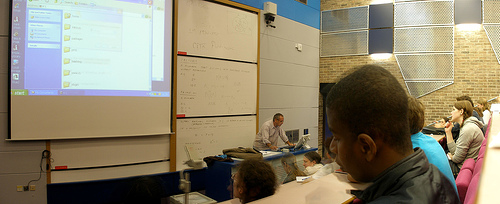By Clare Butler
I recently caught sight of a headline on the Times Higher Education (THE) website. it read: Self-deprecating lecturers contribute to unrest. As a lecturer in work and employment with an interest in the performance of work – and given the stream of all-too-often contradictory advice on how we ought to behave in our lecture theatres – the headline got me thinking: what, in relation to the performance of work, is the business of business schools?
The Times Higher article is based on a study undertaken by academics at the University of Central Florida. Their research suggests a relationship between the content of the personal stories told by lecturers and the behaviour of students in their class. They suggest that when lecturers shared stories of mistakes they had made in their academic life or highlighted difficulties they had experienced in learning certain topics, this had a negative impact on classroom behaviour: the headlining ‘unrest’. The study also noted that this behavioural change was accompanied by an attitudinal change: the students considered their lecturers as being less credible.
But what is the alternative? Should we deny any hint of past mistakes, suggest knowledge comes easily and dismiss the intellectual challenges that we faced (still face!)? Isn’t this a breeding ground for the worst kind of business: that borne of arrogance and ignorance? That our students should be imbued with the belief that mistakes should be hidden; learning is unproblematic; and that any display of self-doubt is a weakness, is risking the continuation of bombastic, supercilious, unfeeling and unthinking business practices that also all-too-often makes headlines.
As a result, alongside developing knowledge and enterprise, the business of business schools ought to be about encouraging authenticity and candour. I suggest this is best taught via show and not tell, and this starts with the presentation of the chink and not the armour.

